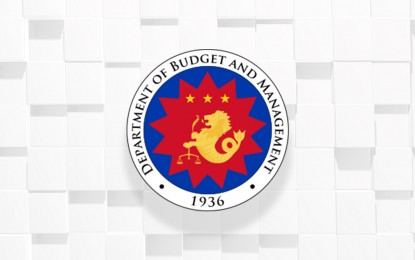
MANILA – The Department of Budget and Management (DBM) is set to present to President Ferdinand R. Marcos Jr. some proposed amendments to the decades-old Republic Act (RA) 9184 or the Government Procurement Reform Act (GPRA).
In a statement on Thursday, DBM Secretary Amenah Pangandaman said the proposed amendments to the GPRA will be presented to Marcos in a Cabinet meeting to be held at Malacañan Palace in Manila next week.
“We already have the amendments and we are ready to present this to the President on Tuesday next week during our Cabinet meeting,” she said.
Pangandaman said amending RA 9184 would help government agencies address “one of the biggest bottlenecks in government spending,” specifically the difficulties in the procurement of their programs, activities and projects.
Once approved, a physical version of the bill amending the government procurement law would be delivered to both the Senate and the House for subsequent filing, Pangandaman added.
“We have steps to address government spending and budget utilization. For government procurement, it is the only one that needs legislation and you know that during the SONA (State of the Nation Address) of the President, it was again mentioned to amend the Government Procurement Reform Act,” she said.
On Aug. 9, Pangandaman issued Circular Letter 2023-10, requiring government agencies to submit catch-up plans to facilitate budget execution for the remaining months of 2023.
The DBM issued the guidelines for budget utilization following the latest Cash Operations Report of the Bureau of Treasury that the national government spending in the first half of 2023 reached PHP2.411 trillion, which is 6.6 percent or PHP170.5 billion below the PHP2.582 trillion programmed for the period.
Pangandman said the underspending was caused by substantial outstanding checks worth PHP124.1 billion as reported by government-servicing banks; lower-than-programmed interest payments; ongoing registration and validation of beneficiaries; and procurement-related difficulties.
She noted that the challenges in procurement include the late delivery of goods and failed biddings due to withdrawal or disqualification of bidders, unavailability of competent suppliers and lack of or late submission of supporting documents, among others.
“As what I would always emphasize, we consider budget utilization rates (BURs) in evaluating the absorptive capacity of agencies. We view low utilization rate as the agency’s limited capacity to utilize new funds. However, those agencies who need to increase their utilization rates have promised to produce catch-up plans during the budget deliberations. So, we hope that their BURs will increase by then,” Pangandaman said.
The DBM earlier partnered with the Land Bank of the Philippines for the use of a digital government purchase card for agencies' faster procurement of immediate miscellaneous expenses.
The use of the online purchase card aims to cut the time needed to liquidate government transactions, promoting reduced cash handling by government agencies, operational efficiency, transparency, and accountability in the disbursement of public funds. (PNA)
